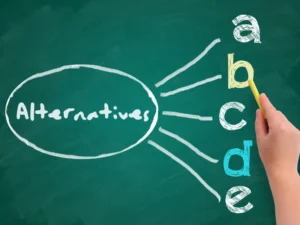Have you heard of dual diagnoses? A significant percentage of people seeking addiction treatment in Mexico at the OCEÁNICA rehab clinic present with this condition. It’s a concurrent form of illness where both an addiction issue and a mental health condition, such as anxiety or depression, coexist.
Depending on the case, certain specialized tests are conducted to examine the long-term harmful effects of substance use on the body. For instance, tobacco smoke can cause various types of cancer, and opioids can lead to overdose, among other risks.
Drugs can either damage or destroy nerve cells in the brain or the nervous system.
What Is the connection between mental health and addiction?
In some cases, mental health issues can coexist with substance use disorders. This may occur because:
- Some substances can lead to addiction in individuals who experience one or more symptoms related to a mental health issue.
- Mental disorders and substance use share certain underlying causes, such as genetic vulnerability, brain composition, and early exposure to trauma or stress.
- Mental health issues sometimes lead to substance use, as some individuals with these conditions may misuse substances as a form of self-medication.
Substance use disorders are frequently linked with other conditions, such as personality disorders, depression, bipolar disorder, or schizophrenia.
Substance use disorders
Symptoms
It can sometimes be challenging to recognize a substance use disorder, as individuals may maintain a high level of functioning and often hide their use of substances or alcohol. However, certain symptoms may indicate behavioral changes, such as:
- Acting secretively.
- Decreased attendance and performance at work or school.
- Lack of motivation.
- Unexplained changes in attitude or personality.
- Exhibiting anxiety or paranoia.
Physical changes
- Unusual odors on the body, breath, or clothing.
- Bloodshot eyes.
- Deterioration in physical appearance.
- Tremors or impaired coordination.
Social changes
- Legal issues related to substance use.
- Sudden change in preferred gathering places and friends.
- Continued substance use despite relationship problems.
- Financial difficulties or an increased need for money.
Can addiction harm others?
Addiction can have various consequences that affect others, including:
Effects during pregnancy or breastfeeding
For pregnant women, substance or medication use can lead to a condition called neonatal abstinence syndrome (NAS), where the baby experiences withdrawal symptoms after birth. The specific symptoms vary depending on the substance used but may include sleep and feeding difficulties, tremors, seizures, and more.
Additionally, some substances can pass into breast milk. Many scientific studies continue to examine the potential long-term effects on children exposed to drugs during breastfeeding.
Harmful effects of smoke
Tobacco smoke exposes those nearby, especially children, to around 250 harmful chemicals. Secondhand smoke undeniably increases the risk of heart disease and lung cancer in non-smokers.
Higher transmission of infectious diseases
Injecting drugs is one of the leading causes of approximately one in ten HIV cases. Drug use also plays a significant role in the transmission of hepatitis C.
However, injection is not the only way drug use contributes to the spread of infectious diseases. Misused substances can impair judgment, increasing the likelihood of engaging in risky sexual behaviors.
Get professional help with addiction treatment in Mexico
At OCEÁNICA, we offer specialized support for addiction treatment in Mexico, with over 30 years of experience providing top-notch healthcare solutions for treating dual diagnoses.
If you’re ready to start your journey to recovery, contact us. You can fill out the form on our website, call us at (55) 88 547 141, or email us at info@oceanica.com.mx. We’ll gladly answer any questions about our drug addiction clinic in Mexico.
Sources:
National Institute on Drug Abuse (NIH). “What Other Health Consequences Does Drug Addiction Have?” Available at: https://nida.nih.gov/es/publicaciones/las-drogas-el-cerebro-y-la-conducta-la-ciencia-de-la-adiccion/la-adiccion-y-la-salud#:~:text=En%20algunos%20casos%2C%20trastornos%20mentales,que%20tienen%20ciertas%20vulnerabilidades%20espec%C3%ADficas.
Substance Abuse and Mental Health (SAMHSA). “Substance Use Disorders and Mental Health.” Available at: https://www.samhsa.gov/salud-mental/trastornos-concurrentes#:~:text=A%20veces%20coexisten%20los%20problemas,un%20problema%20de%20salud%20mental
USAGov. “Mental Health: How to Recognize a Problem and Find Help.” Available at: https://www.usa.gov/es/articulos/salud-mental-donde-encontrar-ayuda











